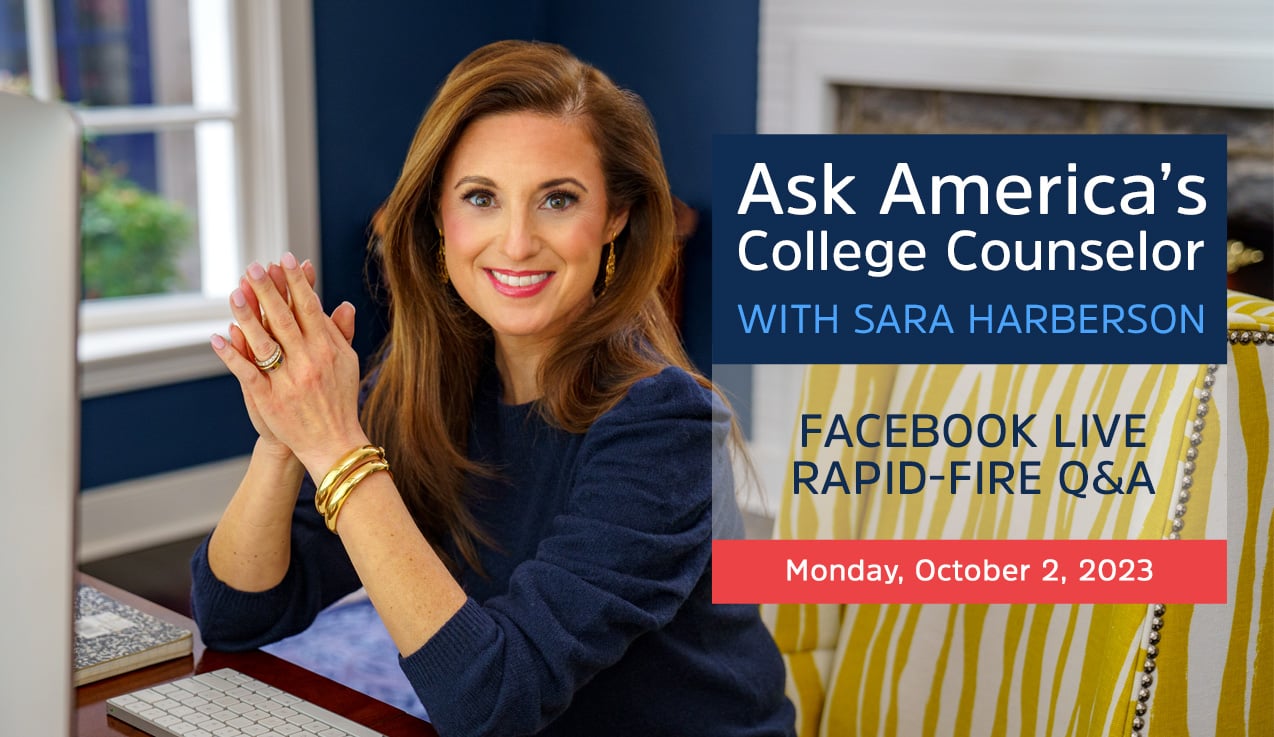I am reviewing a lot of applications for the upcoming Early Decision and Early Action deadlines for my students.
I appreciate the template of the Common Application and how easy it is to navigate through each section. But a few of the questions are not that straightforward and I see my students struggling to figure out how to answer them.
Here are the trickiest questions and how to approach them:
1. Language Proficiency
The Common App asks students to indicate how many languages they are "proficient" in, which ones, and to what extent. Note the word "proficient." That is different than "fluent." Most students can select English and the language they take in high school. Some students can select English, the language they take in high school, and a native language spoken at home. The checkboxes allow the student to choose a number of levels of proficiency from speaking to reading, writing, and more. Don't be afraid to list the languages you are proficient in. It speaks to your heritage and/or your linguistic range. And if you don't see a language, select "Other" and type it in!
2. Social Security Number
The wording on Common App indicates that students only need to provide their social security number if "applying for financial aid via FAFSA." So, if you are planning to fill out the FAFSA, list your social security number. Otherwise, leave it blank.
3. Parents' Occupation, Employment Status, and Employer
These fields are technically not required, but I recommend that students provide this information. If not, admissions officers make assumptions or start to wonder what you are hiding.
4. Dual Enrollment, College, or Other High Schools
If a student takes classes outside of their home high school, they need to provide the institution's name and when they took these classes. But as you can see from this section, there is no space to provide the actual class(es) and grade(s). If the classes and grades appear on the student's official transcript, that is ideal. If not, the student will need to decide to either send an official transcript from the other institution to all the colleges they are applying to, or they can list these outside classes and grades in the Additional Information section of Common App.
5. Grades (and Rank)
Students should take the unweighted or weighted GPA from their official transcript and input it in the Education section. Make sure to accurately represent your GPA exactly the way it appears on your transcript. Do not round up. If your school does not provide a GPA on the transcript, you can select "None." And students are only permitted to input a class rank, decile, or other forms of ranking in this section if it shows up on their transcript.
6. Future Plans
Make sure the "Highest degree you intend to earn" and "Career interest" that you list in this section matches up or complements the major you listed on the college's supplement. It is absolutely normal for a student's future plans to be different than their major choice, but try to make sure you keep things consistent for the purposes of your application. For example, let's say you list that you want to be an English major on the college's supplement and then indicate that you only want a Bachelor's degree and intend to be an engineer. That will send mixed messages since you would need a Master's degree to be an engineer and the undergraduate major you listed is unrelated to engineering.
7. Testing
The Common App asks how many tests you wish to report, not how many tests you have taken! Only input the number of tests you are going to be listing scores from. For example, if you took the SAT three times, but you are only reporting your highest Evidence Based Reading and Writing score and Math score from one test, you would only indicate "1" for the number of tests you are reporting.
8. Participation Grade Levels (in the Activities section)
The Common App associates summer activities with the grade level you are going into, not the grade level you just finished. So if you have a job the summer between 11th and 12th grade, you would select "12" for this activity. And the only time you select "PG" is if you are doing an activity after you graduate from high school and are attending a private or boarding school as a "postgraduate" student.
9. Similar Activity in College (in the Activities section)
For every activity you report, you must answer whether or not you want to continue to do that activity in college. Interpret this generously. For example, for a student who has played a varsity sport for all four years of high school, but isn't getting recruited yet they still want to play the sport on the club or recreational level in college, they can answer "yes." Colleges want to be able to visualize students being active and engaged community members on their campus. Most of my students answer "yes" to the majority of the activities they list.
10. Additional Information
As a former dean of admissions, I can tell you that most admissions officers hate when students fill up this section unnecessarily. It slows admissions officers down when they are reading the application and the information provided by the student is often extraneous or over the top. Only use this section if you really need to, like explaining a scheduling conflict, an unusual situation, or providing a class/grade that you took outside of your home school if it doesn't appear on your home high school's transcript.
READ MORE: One Small Thing to Check Before Your College Application Deadlines
I have filled out the Common Application thousands of times with my students. I have read through hundreds of thousands of applications when I worked on the college side of the admissions process. I know the ins and outs of this application, but students are filling this application out for the first time. Some questions are straightforward; other questions are less intuitive. If you are ever unsure about how to respond, use the Common App "Need help?" boxes in each section. You will often find your answer!












